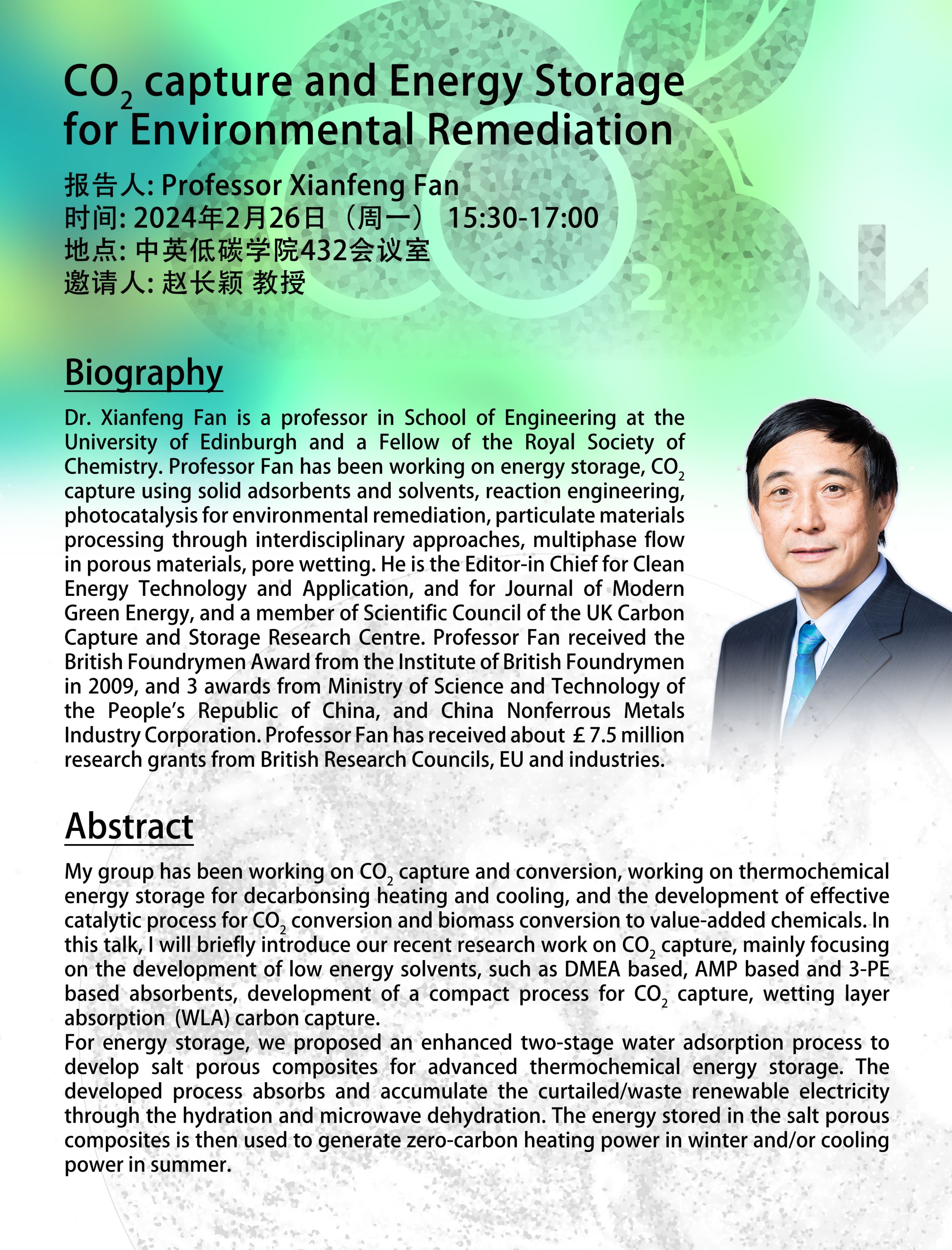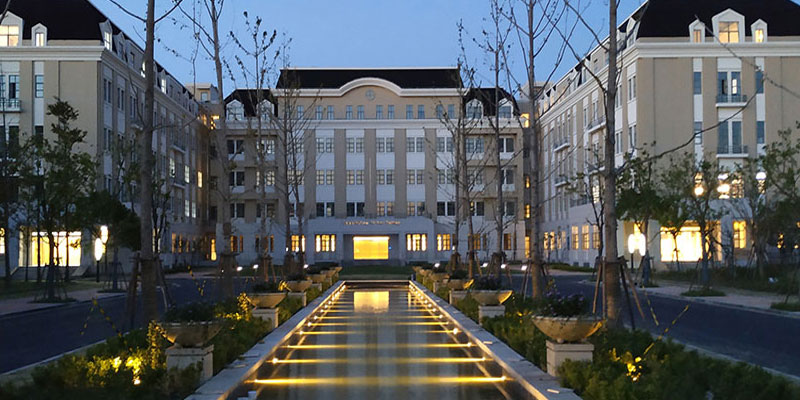学术报告
CO2 capture and Energy Storage for Environmental Remediation
题目:CO2 capture and Energy Storage for Environmental Remediation
报告人:Professor Xianfeng Fan
时间:2024年2月26日(周一)15:30-17:00
地点:威廉希尔WilliamHill官方网站432会议室
邀请人:赵长颖 教授
Biography
Dr Xianfeng Fan is a professor in School of Engineering at the University of Edinburgh and a Fellow of the Royal .png) Society of Chemistry. Professor Fan has been working on energy storage, CO2 capture using solid adsorbents and solvents, reaction engineering, photocatalysis for environmental remediation, particulate materials processing through interdisciplinary approaches, multiphase flow in porous materials, pore wetting. He is the Editor-in Chief for Clean Energy Technology and Application, and for Journal of Modern Green Energy, and a member of Scientific Council of the UK Carbon Capture and Storage Research Centre. Professor Fan received the British Foundrymen Award from the Institute of British Foundrymen in 2009, and 3 awards from Ministry of Science and Technology of the People's Republic of China, and China Nonferrous Metals Industry Corporation. Professor Fan has received about £7.5 million research grants from British Research Councils, EU and industries.
Society of Chemistry. Professor Fan has been working on energy storage, CO2 capture using solid adsorbents and solvents, reaction engineering, photocatalysis for environmental remediation, particulate materials processing through interdisciplinary approaches, multiphase flow in porous materials, pore wetting. He is the Editor-in Chief for Clean Energy Technology and Application, and for Journal of Modern Green Energy, and a member of Scientific Council of the UK Carbon Capture and Storage Research Centre. Professor Fan received the British Foundrymen Award from the Institute of British Foundrymen in 2009, and 3 awards from Ministry of Science and Technology of the People's Republic of China, and China Nonferrous Metals Industry Corporation. Professor Fan has received about £7.5 million research grants from British Research Councils, EU and industries.
Abstract
My group has been working on CO2 capture and conversion, working on thermochemical energy storage for decarbonsing heating and cooling, and the development of effective catalytic process for CO2 conversion and biomass conversion to value-added chemicals. In this talk, I will briefly introduce our recent research work on CO2 capture, mainly focusing on the development of low energy solvents, such as DMEA based, AMP based and 3-PE based absorbents, development of a compact process for CO2 capture, wetting layer absorption (WLA) carbon capture.
For energy storage, we proposed an enhanced two-stage water adsorption process to develop salt porous composites for advanced thermochemical energy storage. The developed process absorbs and accumulate the curtailed/waste renewable electricity through the hydration and microwave dehydration. The energy stored in the salt porous composites is then used to generate zero-carbon heating power in winter and/or cooling power in summer.





 友情链接 ---
友情链接 ---